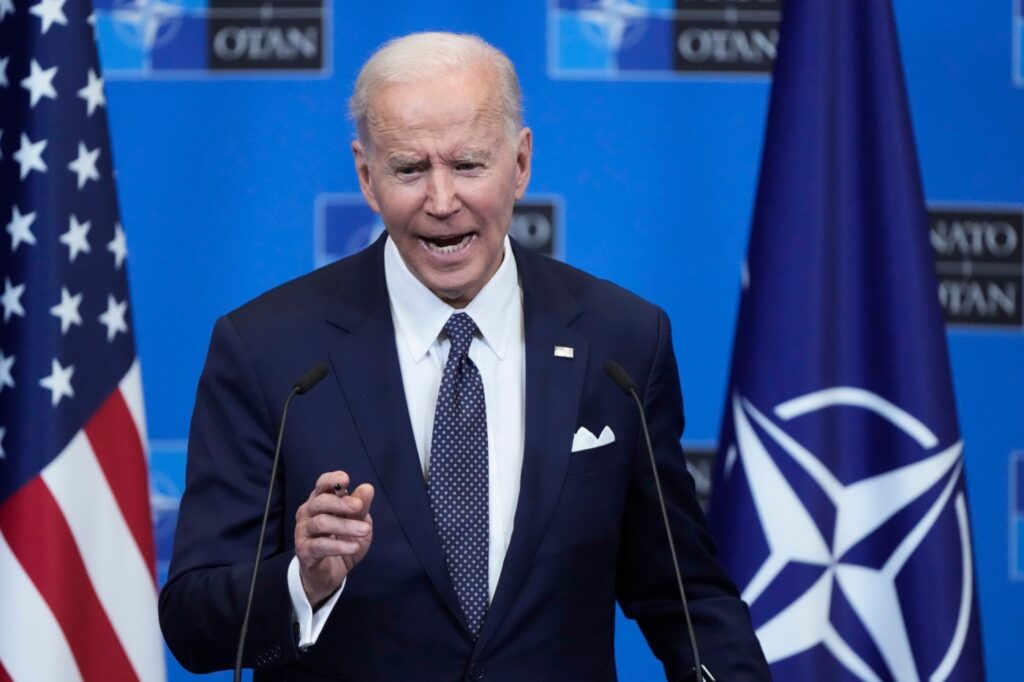
On Sunday, retired general Philip Breedlove, former Supreme Allied Commander Europe, told The Times of London that NATO should put boots on the ground in Ukraine.
General Breedlove, who reportedly advises the Biden administration on its Ukraine policy, asserted the necessity of inserting NATO forces into an active warzone incorrectly stating that “there are no Russian troops west of the Dnieper River. So why don’t we put NATO troops into western Ukraine to carry out humanitarian missions and to set up a forward arms supply base?”
Beyond providing a protected point of arms supply, Breedlove went on to argue that NATO forces so positioned should also enable the protection of Odessa from Russian forces to prohibit them from cutting Ukraine off from the Black Sea.
The fact that a former commander of NATO forces in Europe is openly promoting the idea of inserting NATO ground forces into Ukraine heedless of the very real risk of escalation toward the nuclear threshold should be deeply concerning. Russia’s nuclear doctrine clearly outlines the potential for nuclear use – even “limited” or “tactical” use – in a conventional conflict with NATO forces. According to a recent report by the Congressional Research Service, given its conventional deficiencies, “Russia has potentially placed a greater reliance on nuclear weapons and may threaten to use them during regional conflicts.”
Most experts seem to agree that the chance of nuclear use in the current conflict remains low as long as NATO stays out of the fighting. If that changes, escalation could conceivably occur rapidly.
General Breedlove is not alone in making reckless policy pronouncements on Ukraine. GOP House Rep. Adam Kinzinger has repeatedly called for a “no-fly zone” over Ukraine, a move that would lead to US aircraft targeting Russian planes and air defense assets on the ground, a blatant act of war. Democratic Senator Chris Coons also recently had to walk back a suggestion that the US should send troops to Ukraine.
These comments from prominent public officials and experts are, however, a symptom of a bigger problem. US policymakers, as well as the public at large, have been largely spoiled by 30 years of primacy on the international stage, a period that saw the US and its allies engage in numerous armed actions against enemies that posed no significant conventional – let alone nuclear – risk.
These “low-risk” wars were by no means without risks or consequences. Indeed, America’s adventures in Iraq and Afghanistan alone cost hundreds of thousands of lives and ruptured the stability of the whole region. However, from Bosnia and Kosovo, to Iraq, Afghanistan, Libya, and Syria, US wars never posed a real existential risk to the West. There was never any real chance US forces would be decisively defeated in a conventional engagement. In each of these wars, US and allied air supremacy was absolute. Calls for intervention, based on imagined preventative needs as in Iraq or the “responsibility to protect” as in Yugoslavia, were more easily made and received given the relatively low risks for the majority of the American public who don’t actively serve in uniform.
The calls for direct intervention in Ukraine tonally mirror the public outcries of America’s time as the hegemonic power, an age gradually ending. Yet the stakes and risks in the Russo-Ukrainian War could not be more different.
Related Articles
Is California’s population decline a pandemic glitch or start of a new era?
Lanhee Chen for Controller: Endorsement
State’s latest tobacco ‘protections’ are trying to kill us
What a new Republican agenda should look like
California’s K-12 system is in a state of emergency
Russia possesses the largest nuclear arsenal in the world with 1,500 deployed warheads and President Putin’s will to use them grows as NATO’s involvement in the conflict deepens. Directly confronting Russian forces in a conventional conflict blows the lid off deterrent constraints and begins the rapid climb up an escalatory ladder that most Americans haven’t seriously thought about since the Cold War.
Arguably, the US has not faced a true peer adversary in a conventional war since 1945. The sheer magnitude of a direct conflict with Russia would be unlike anything the American people have faced in generations with unthinkable consequences for US and global security. To talk so blithely of US intervention as if to weigh intervening in a low-level bush war is irresponsible in the extreme and plainly indicative of the careless arrogance the past 30 years of American warfighting has produced.
President Biden has rightly ignored the reckless peanut gallery of saber-rattlers and chosen a prudent middle ground by supplying Ukraine but staying out of the fighting. He should continue to resist thoughtless calls to risk American lives.
Scott Strgacich is a former Marcellus Policy Fellow and graduate of the University of California, Berkeley. The views expressed are the author’s own.
